RTEI 2021 data now available
May 6, 2022New data on the state of the right to education around the world.
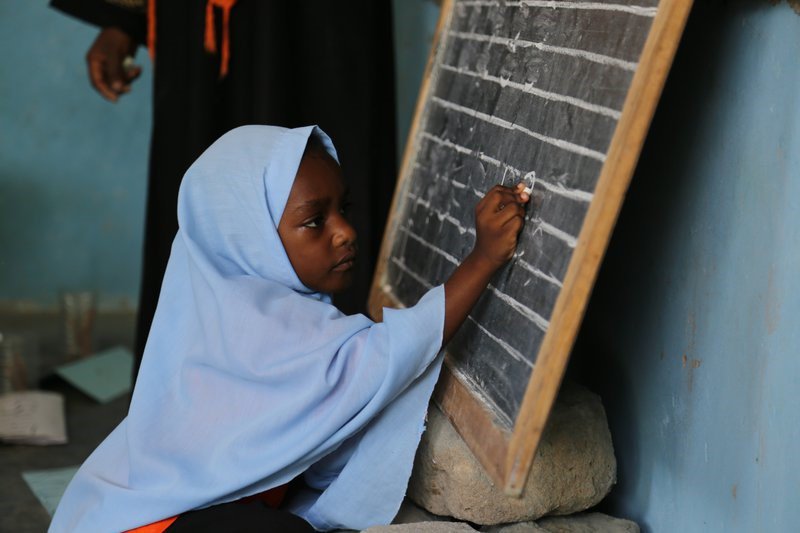
A girl writes numbers on the blackboard. Tanzania, April 2017. Photo Credit: GPE/Chantal Rigaud
The Right to Education Index (RTEI) is pleased to present data from the latest round of research investigating the state of the right to education across 15 countries. This year’s findings show that in all surveyed countries, the right to education has been significantly impacted by school closures due to COVID-19.
RTEI 2021 findings
Overall country scores
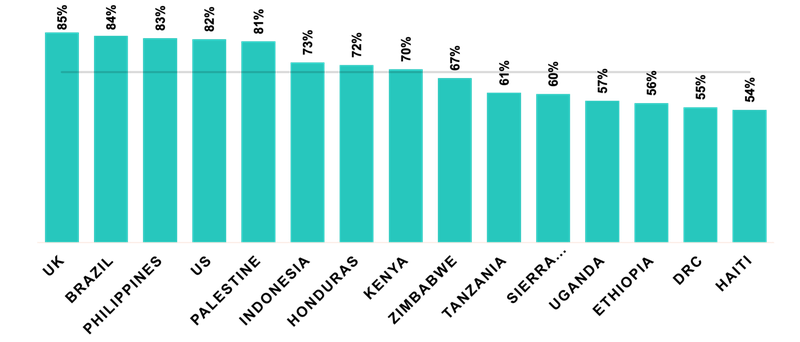
[Scores, by country. The average score across all 15 countries is 69%.]
As expected, performance is largely determined by the resources available to each country, with high income countries generally outperforming middle- and low-income countries. However, Honduras, Sierra Leone, and Palestine* significantly outperformed their income level suggesting that these countries take the right to education very seriously. At the other end of the spectrum Ethiopia, United States (US), and Democratic Republic of Congo (DRC) performed worse than their income level would suggest.
Country scores, by theme
RTEI is a measure of the status of the right to education and is structured according to the 4As (a framework that classifies elements of the right to education as availability, accessibility, acceptability, and adaptability) and governance.
Governance concerns the legal and political structure of education, and how it is administered and resourced. Governance has five subthemes: international framework, national law, plan of action, monitoring and reporting, and financing. The average score for governance is 75%.
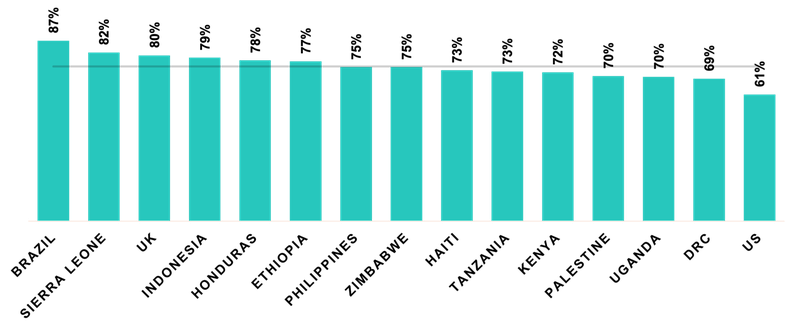
Availability can be understood as a measurement of the specific quantity of educational institutions available and the structural condition of these institutions, as well as education inputs, such as learning materials. Availability has three subthemes: classrooms, sanitation, teachers, and learning materials. The average score for availability is 72%.
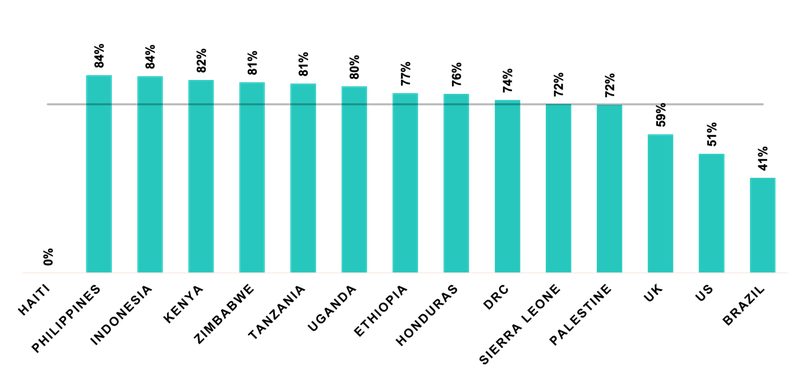
Accessibility is whether available institutions are accessible to all students regardless of personal characteristics or demographic status. Accessibility has two subthemes: free education and participation. The average score for accessibility is 64%.
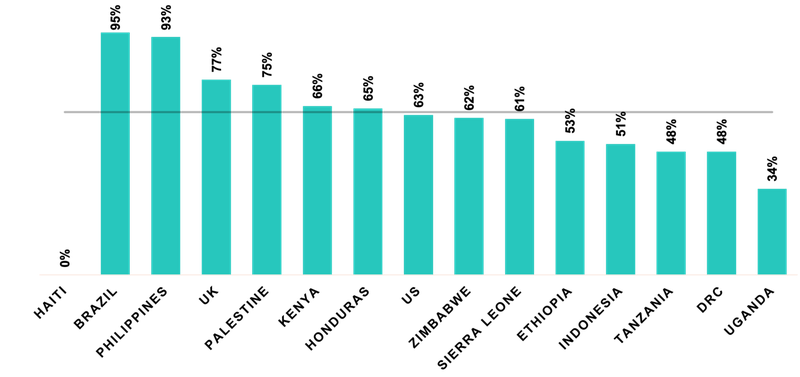
Acceptability is a measurement related to the quality of available education. This moves beyond learning outcomes to also capture the cultural relevance and security of the educational environment as well as the aims and content of education. Acceptability has three subthemes: aims of education, learning environment, and learning outcomes. The average score for acceptability is 70%.
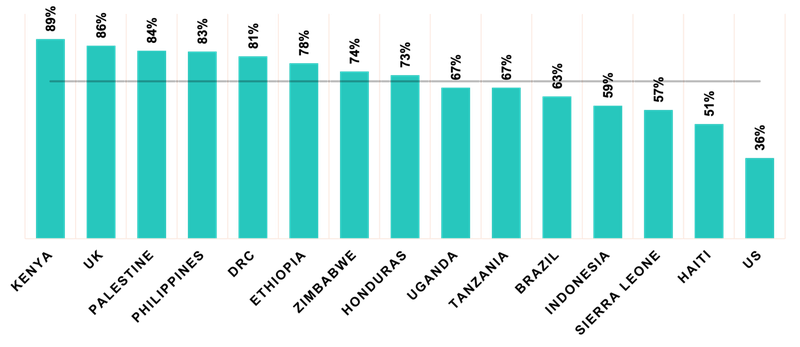
Adaptability is the ability of education to be flexible in meeting the needs of a diverse range of students, ensuring that education is available, accessible, and acceptable for all. Adaptability is the largest theme with six subthemes: children with disabilities; minorities and indigenous peoples; girls; child labor; armed conflict; migrants, refugees, internally displaced children, and children deprived of liberty. The average score for adaptability is 61%.
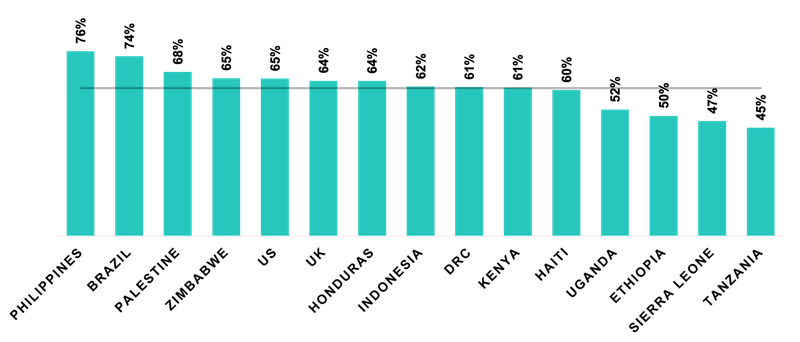
To access data by theme and subtheme, see here.
To access data by country, see here.
National contexts
RTEI data is most useful when looked at the national level. Each country has completed comprehensive questionnaires and analysed the findings in country briefs, which focus on the most pressing issues reveal by RTEI as well as issues of data availability and the impact of COVID-19. Access the 2021 country briefs here.
Data availability
Lack of data remains a significant issue that undermines states efforts to realise the right to education. Many states fail to collect basic data about the performance of the education system resulting in a lack of understanding of weaknesses, which in turn results in poor policies and poor outcomes.
The impact of COVID-19 on the right to education
The impact of COVID-19 on education systems was also examined under RTEI 2021. A new section was added to the questionnaire to facilitate analysis on the impact of school closures on the right to education. See data here.
About RTEI
The data is the outcome of a comprehensive monitoring exercise conducted over the course of 2021 and 2022 by civil society partners from 15 countries. Partners completed a comprehensive questionnaire with each question shedding light on an aspect of the right to education. Their findings were reviewed by an expert review group and provided to government officials for further feedback. Each completed questionnaire provides an overview of how each country is performing in relation to their human rights obligations. Information on how RTEI is calculated can be found here. In 2021 slight changes were made to how RTEI is scored, for example, new questions were added, and some questions were removed or consolidated. Gender parity in participation in education was also scored for the first time to reflect not just how well education systems perform in relation to enrolment and completion but also whether they do so in gender equitable ways.
RTEI operates on a two-year recurring cycle, with research conducted in the first year and followed by the implementation of in-country advocacy strategies in the second. 2021 is the fourth cycle of RTEI with previous cycles in 2018, 2016, and a pilot round in 2015.
The 15 countries and civil society partners participating in RTEI 2021 are:
- Brazil – Brazilian Campaign for the Right to Education
- Democratic Republic of Congo – Coalition Nationale de l’éducation Pour Tous (CONEPT/RDC)
- Ethiopia – Basic Education Network Ethiopia (BEN-E)
- Haiti – Regroupement Education pour Toutes et Pour Tous (REPT)
- Honduras – Foro Dakar
- Indonesia – Network for Education Watch (NEW)
- Kenya – ElimuYetu Coalition
- Palestine – Teacher Creativity Center (TCC)
- Philippines – Civil Society Network for Education Reforms (E-Net)
- Sierra Leone – Education For All Sierra Leone
- Tanzania – HakiElimu
- Uganda – Initiative for Social and Economic Rights (ISER)
- United Kingdom – RESULTS UK
- United States – Global Campaign for Education-US (GCE-US)
- Zimbabwe – Education Coalition of Zimbabwe (ECOZI)
* Results for Palestine may be unreliable due to some lack of verifiability of some data in the research process.
